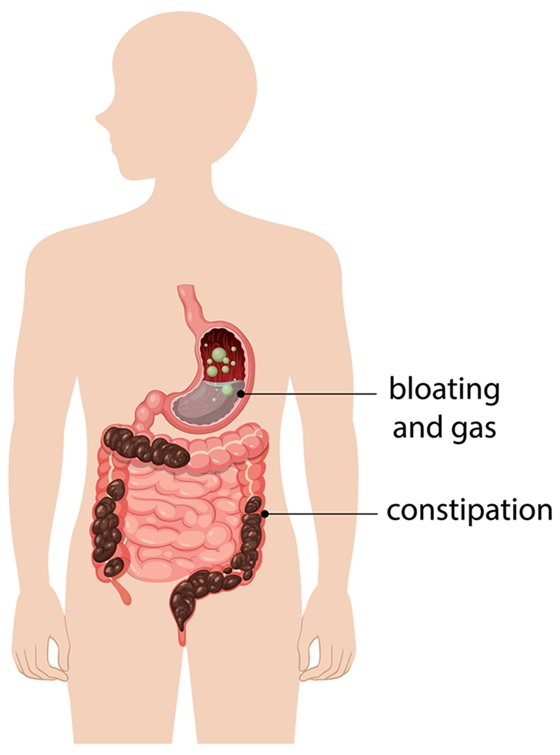Constipation
🔍 What is Constipation?
Constipation refers to infrequent, difficult, or painful bowel movements, typically resulting in the passage of hard, dry stools. It is one of the most common digestive complaints and can affect people of all ages.
🧾 How is Constipation Defined?
While bowel habits vary between individuals, constipation is generally diagnosed when someone experiences:
-
Fewer than 3 bowel movements per week
-
Straining during more than 25% of bowel movements
-
Hard or lumpy stools
-
Sensation of incomplete evacuation
-
Need for manual maneuvers to pass stool (e.g., pressing on abdomen or using fingers)
⚠️ Common Causes
1. Dietary and Lifestyle Factors
-
Low fiber intake (fruits, vegetables, whole grains)
-
Inadequate fluid consumption
-
Lack of physical activity
-
Ignoring the urge to pass stool
2. Medical Conditions
-
Irritable bowel syndrome (IBS)
-
Diabetes or thyroid disorders
-
Neurological conditions (Parkinson’s disease, stroke)
-
Pregnancy
3. Medications
-
Painkillers (especially opioids)
-
Iron supplements
-
Antacids containing calcium or aluminum
-
Antidepressants or antihypertensives
🩺 Symptoms of Constipation
-
Infrequent bowel movements
-
Hard or dry stools
-
Bloating and abdominal discomfort
-
A feeling of fullness or blockage
-
Straining during stools
-
Occasionally, rectal bleeding from hard stools
💡 How to Prevent or Relieve Constipation
✅ Diet & Lifestyle Changes
-
Increase fiber intake (whole grains, fruits, vegetables, legumes)
-
Drink 6–8 glasses of water daily
-
Exercise regularly (walking, yoga, etc.)
-
Respond to bowel urges promptly
-
Avoid processed and high-fat foods

